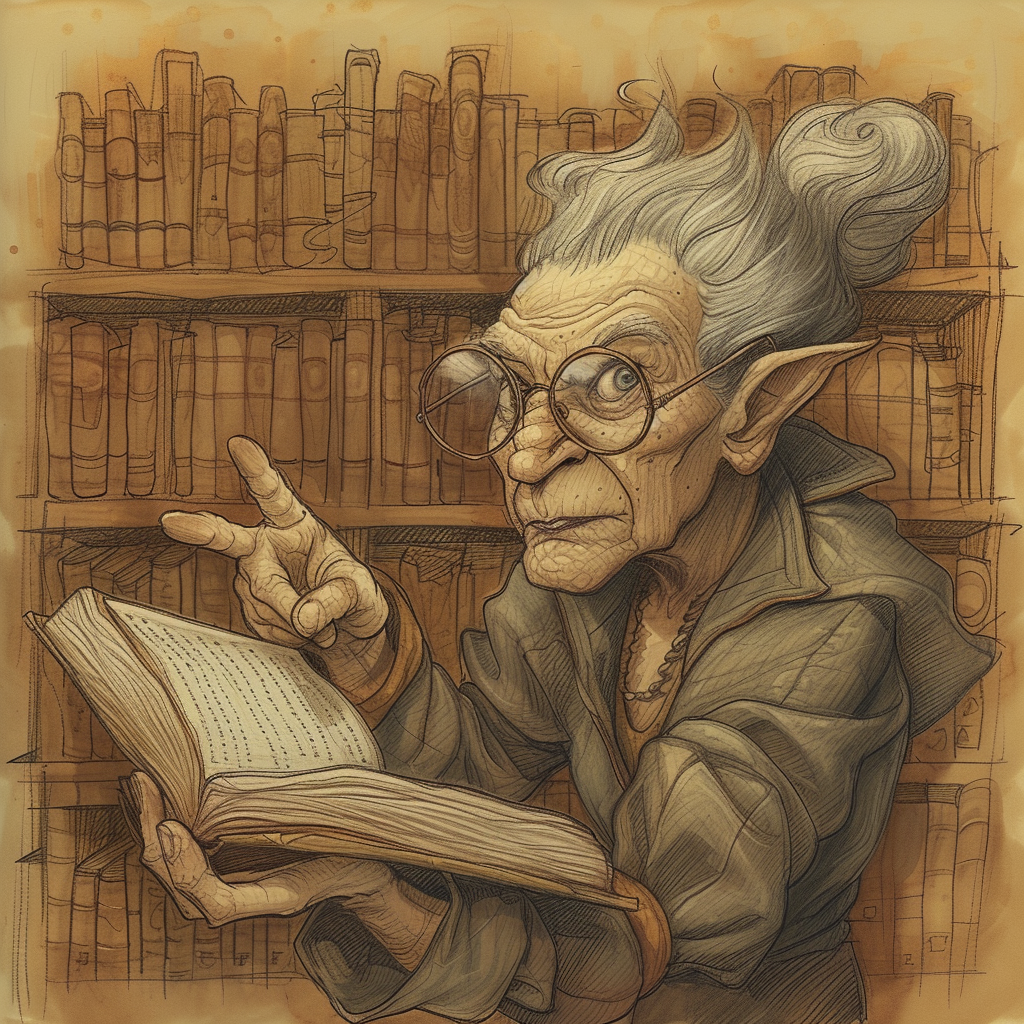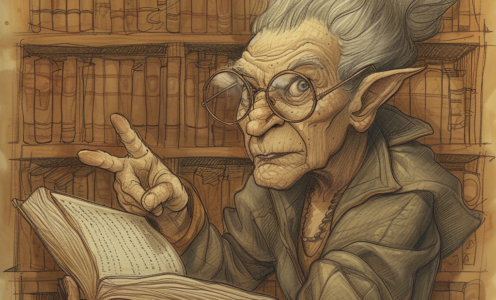Talk Like an Outlander
Lightly yes and maybe yea,
—Cager poem mocking the Outlanders
aiblins no and p’raps nay.

Of all the planes on the Great Ring, the Outlands has the most diverse visitors—what you’d expect from the plane that literally touches all of the others. This means that all kinds of exotic languages can be heard here, but it also means the Common tongue of the planes is the most useful. Practically every cutter who hails from the plane has a decent grasp of the common tongue, and frequently many other languages as well.
Like Sigil, the locals have their own way of speaking common. Unlike the Cant of the Cage, the language they’ve evolved isn’t so obsessed with faction politics, mocking primes and cross-trading. Instead, the Outlanders have developed a vast lexicon of ways to say neither yes nor no.
Why, you might be thinking? Well, some Outlanders are indeed indecisive, and some are apathetic. The more philosophical cutters have a tendency to be obsessed with balancing their decisions and considering all angles. And finally, other Outlanders will do one thing one time and then the opposite the next—while keeping a tab on their choices to make sure they’re all squared off with the Balance.
Outlander Words and Phrases
Outlanders have a dozen ways to say neither yes nor no
—Sigilian saying
Yes and no
The folk of the Outlands have a four-form system to agree or disagree, comprising the words yea, nay yes, and no. In essence, yes and no are the responses to a question posed in the negative, whereas yea and nay are the responses to positively framed questions.
- Will he go? — Yea, he will.
- Will she go? — Nay, she will not.
- Will he not go? — Yes, he will.
- Will she not go? — No, she will not.
Maybe
One thing you’ll get used to hearing from Outlanders is ‘maybe’. Of course, this being the Outlands, there are many, many flavours of maybe, and each word has its own connotations.
| Aiblins or ables | Yes and no |
| Aunters, peradventure | In all likelihood |
| By some means | Halfway between yes and no |
| Lightly | That might easily happen |
| Middling | Not great, but not bad either |
| Uphap, yimkin, p’raps, or mebbe | Perhaps |
| Weather permitting | Maybe |
Directions
The Outlands don’t have time (or the magnetism) for Prime concepts like North and South. As you might expect, things here are dominated by the Spire. Travellers moving towards the Spire are said to be heading spireward, and the opposite direction to this is brinkward. While these two are the most useful, in fact there are a many more words that planewalkers have invented to describe their travels around the Outlands.
| Athwart | Adverb. To skirt around a ring of the Outlands rather than travel directly from one discrete location to another. |
| Brink, the | Noun. The ‘edge’ of the Outlands; the lands immediately surrounding the gate towns; the 10th ring of the Outlands |
| Brinkward | Adverb, adjective. To travel in a direction away from the Spire |
| Cogward | Adverb. To travel towards Automata or any of the gate towns on the side of the Great Ring bordering the Planes of Law. |
| Deosil | Adverb. Clockwise; to travel around the Outlands keeping the Spire on one’s right side. Superstitious cutters consider this the “prosperous course”, and many religions require their priests to circle the temple in the deosil direction for blessings. Antonym: widdershins. |
| Gloomward | Adverb. To travel towards Hopeless or any of the gate towns on the side of the Great Ring bordering the Lower Planes. |
| Hinterlands | Noun. The surreal area beyond the 10th ring of the Outlands, where time and direction start to lose all meaning. |
| Joyward | Adverb. To travel towards Ecstasy or any of the gate towns on the side of the Great Ring bordering the Upper Planes. |
| Ringlands, the | Noun. The larger part of the Outlands, spanning from the gate towns to near the Spire; rings 3-9 of the Outlands. |
| Soupward | Adverb. To travel towards Xaos or any of the gate towns on the side of the Great Ring bordering the Planes of Chaos. |
| Spirelands, the | Noun. The part of the Outlands closest to the Spire and its foothills where magic is largely annulled; rings 1-3 of the Outlands. |
| Spireward | Adverb, adjective. To travel towards the Spire. |
| Twain | Preposition. To travel from one point to another by the most direct route. “It takes 3-18 days to travel twain two adjacent gate towns.” |
| Twixt | Preposition. Between, especially between planes. For example, to travel twixt the Outlands and the Prime, or the Fey Realm |
| Underlands | Noun. The second layer of the Outlands; the Upside-Down; the plane of judgement overseen by Pharasma and home of the outsider race of spirit-ushers called the Psychopomps. |
| Usward | Adverb. To travel towards the speaker or their home burg. “When you’re finished in Semuanya’s bog, make sure you come usward.” |
| Widder or widdershins | Adverb. Against, anticlockwise. To walk around the Outlands keeping the Spire on your left-hand side. Thought to be unlucky by some. Related to the word widdershins, meaning anticlockwise (wider = against, sin = direction). Antonym: deosil. |
| Witherward | Adverb. To travel towards an unknown destination, especially used by planewalkers striking out into the Hinterlands. |
| Yonder | Adverb. Over there; often used in place of brinkward |
Source: Jon Winter-Holt, mimir.net. Author’s note: while it may seem barmy to have two words for yes and two more for no, in fact until the 1600s the English language did indeed do exactly this.

